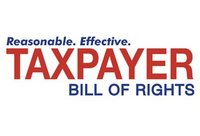Oct. 29–More than one Colorado political expert has said that the Taxpayer’s Bill of Rights has had more effect on state government than any other ballot measure in the state’s history.
TABOR, as the 20-year-old voter-approved measure is known, has been felt across the state during two recessions. It’s best known for restricting Colorado governments — from the state down to school districts — from increasing taxes without a vote of the people. The measure was added to the state Constitution on Election Day in 1992.
It also uses a formula to cap state spending.
TABOR is so bulletproof that it motivated many Republicans to join with Colorado Democrats in 2005 to push an anti-TABOR ballot measure, called Referendum C. The measure allowed the state to keep almost $4 billion that would have otherwise been refunded to taxpayers, and it altered TABOR’s formula to give the state an easier time in the future by easing spending caps.
But the referendum didn’t restore the billions of dollars in government revenue TABOR had cut off since 1992. Love it or hate it, you can’t dispute how TABOR has changed government over the past two decades. Continue reading

